Disassembly Procedure
- Remove the generator. Refer to Generator Replacement .
- Mark a match line that cannot easily be removed on the end frame to make assembly easier.
- Pry off the plastic cover to expose the stator connections.
- Remove the stator connections from the rectifier bridge terminals by unsoldering or cutting the wires.
- Remove the generator through-bolts.
- Move to the drive end of the generator and remove the drive end bearing nut.
- Remove the pulley and the collars.
- Test the rotor for an open circuit by using the ohmmeter with the drive end frame assembled. The reading should be sufficiently high, or the rotor must be replaced.
- Test the rotor for an open and short circuits. The reading should be 1.7 to 2.3 ohms, or the rotor should be replaced.
- Remove the drive end frame from the shaft.
- For vehicles with an internal generator fan, remove the drive end frame and the fan.
- Remove the rotor assembly.
- Remove the stator.
- Test the stator for an open circuit using the ohmmeter.
- Pry off the baffle.
- Remove the rectifier, regulator and brush holder assembly screws.
- Remove the brush holder assembly and the regulator, cutting the terminal between the regulator and the rectifier bridge.
- Test the rectifier bridge by connecting the ohmmeter terminals to the bridge and the heat sink.
- Retest by connecting the ohmmeter terminals in reverse.
- Replace the rectifier bridge if each reading is the same.
- Test the remaining two diodes after the above procedure.
- Test the diodes by connecting the ohmmeter terminals to the bridge terminal and base plate. If the reading is the same, the rectifier bridge should be replaced.
- Remove the ring in the slip ring end frame.
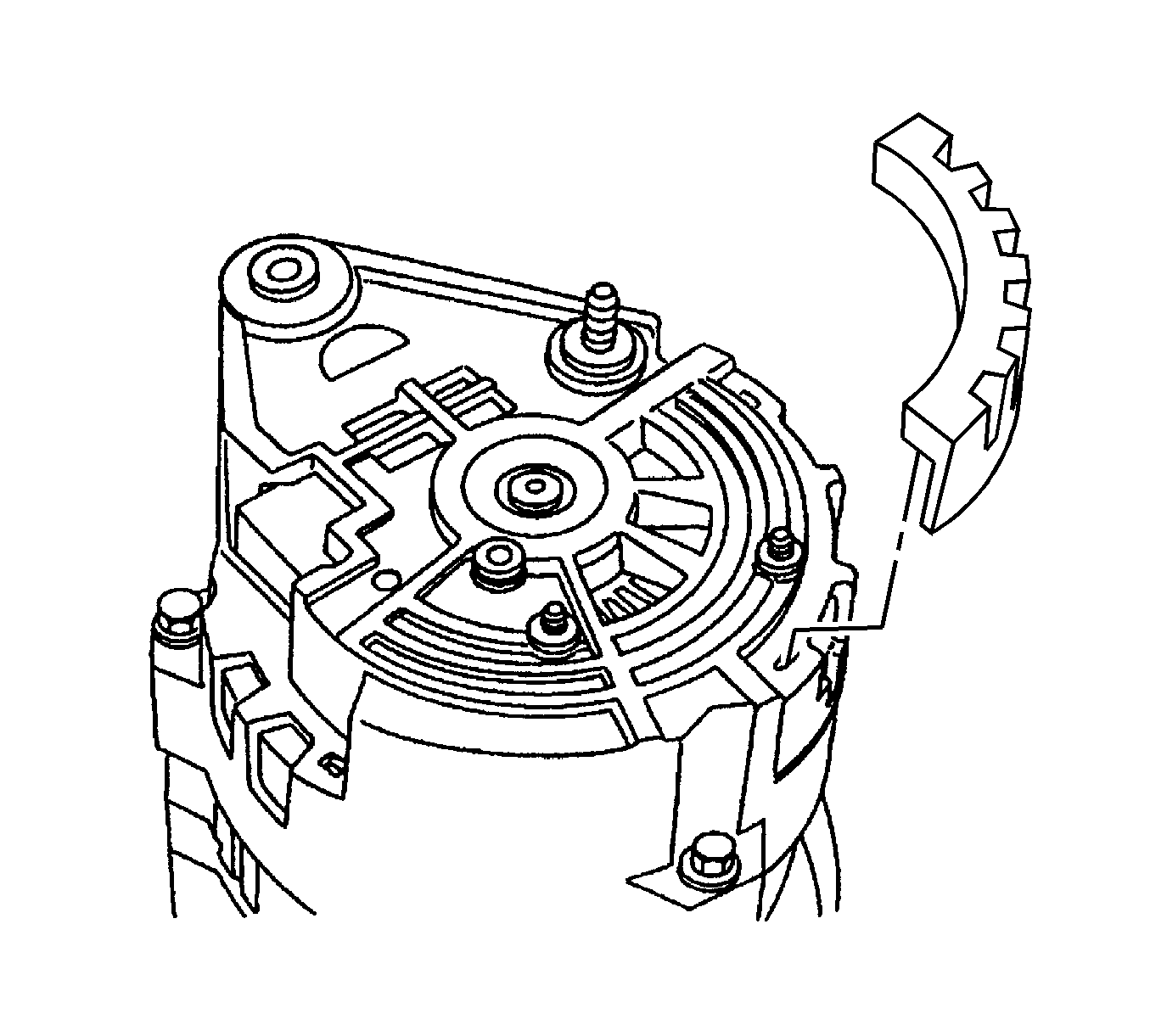
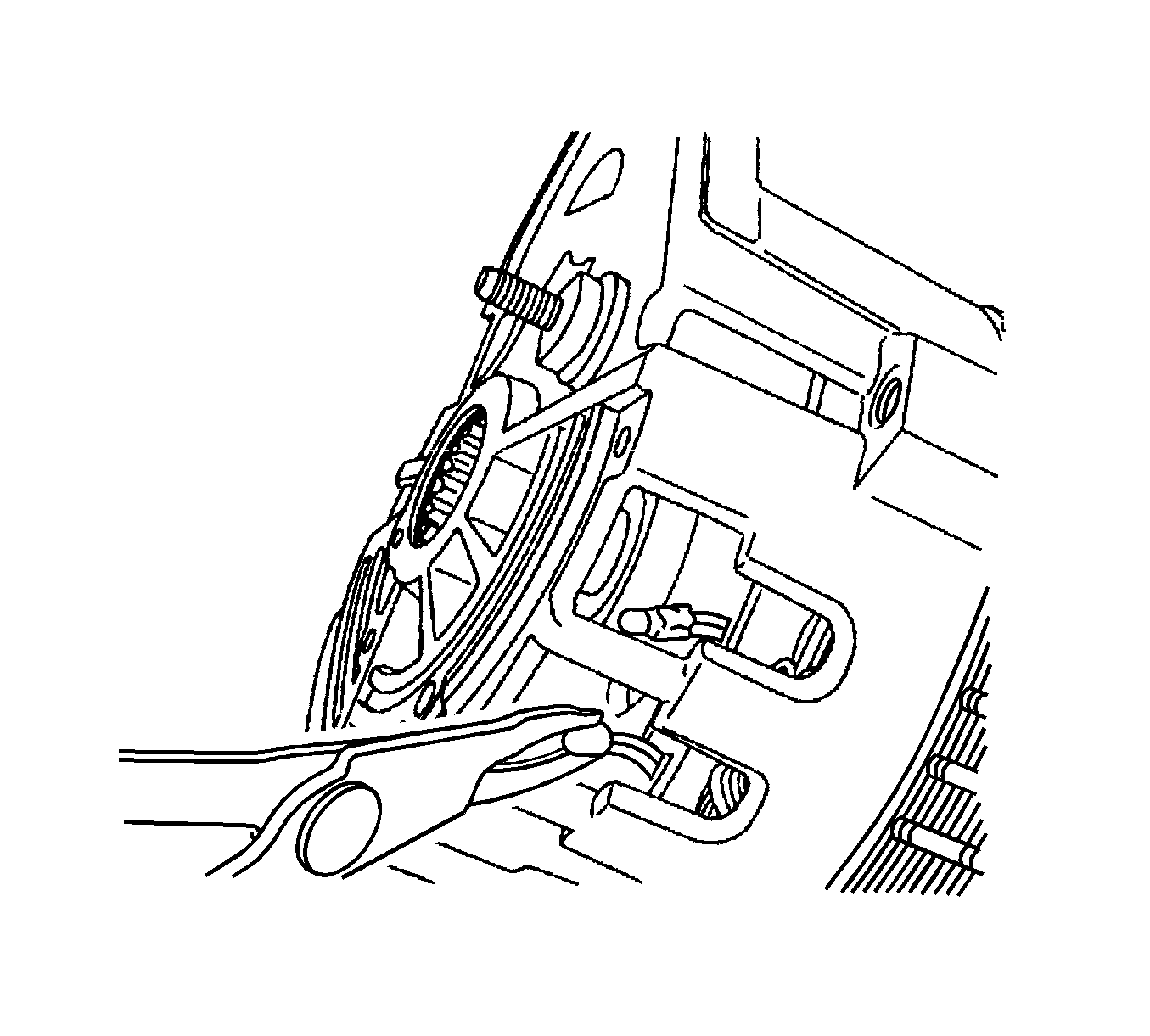
Notice: If the stator connections are welded in, use just enough heat to melt the lead. Avoid using to much heat as it can damage the diodes.
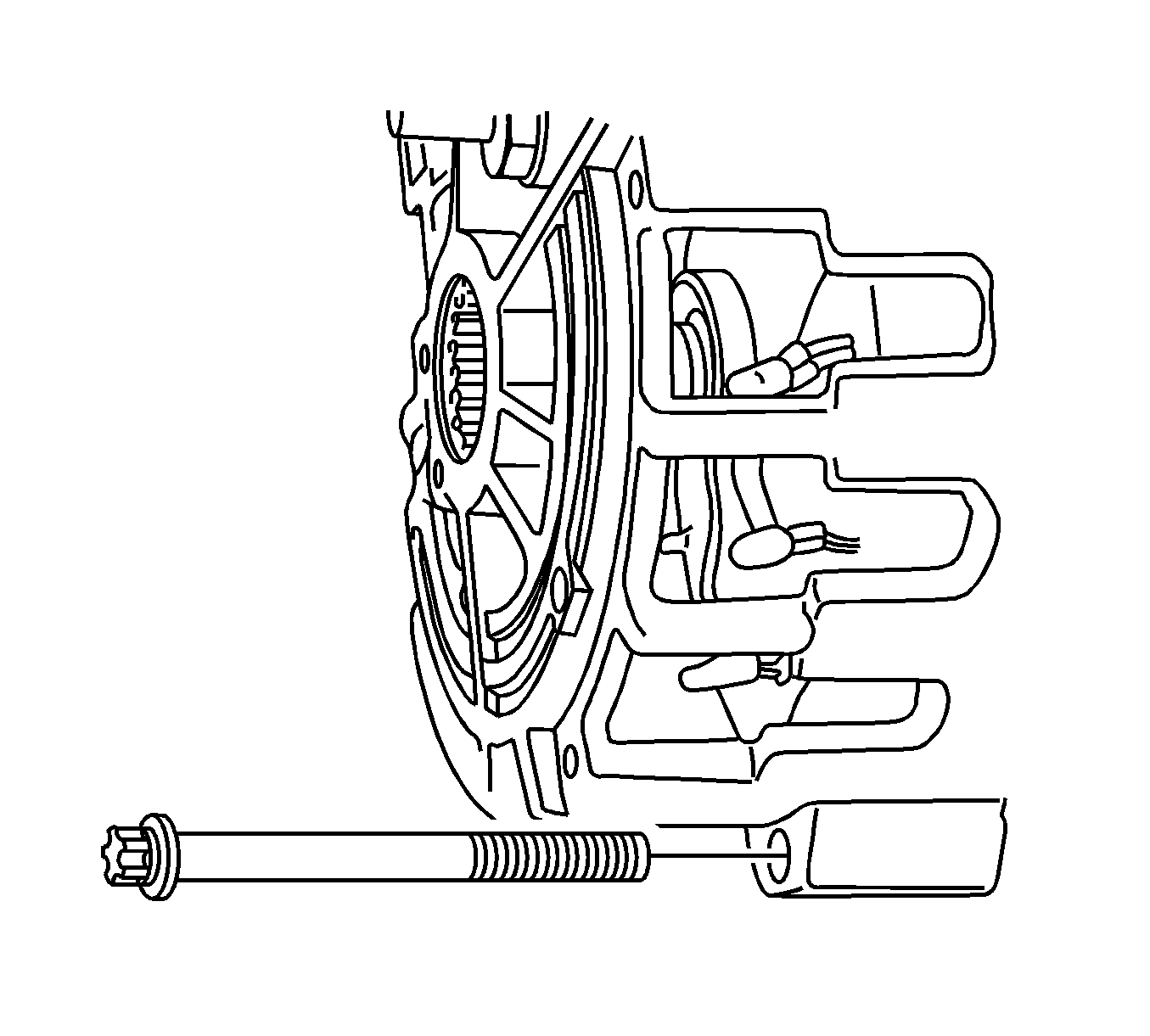
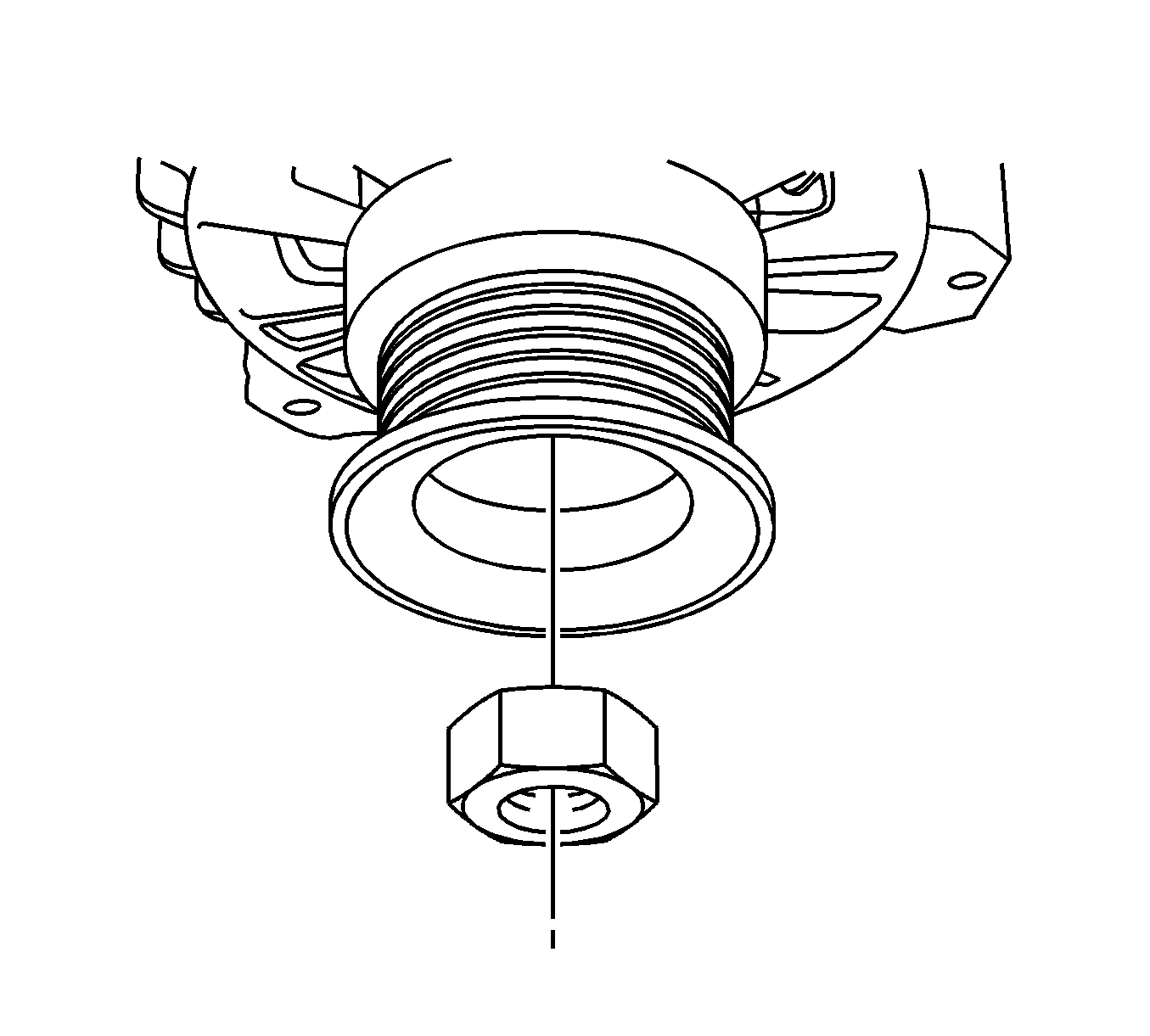
Important: The fastening torque of this nut is 81 N·m (60 lb ft) and may not normally be unfastened using hand strength.
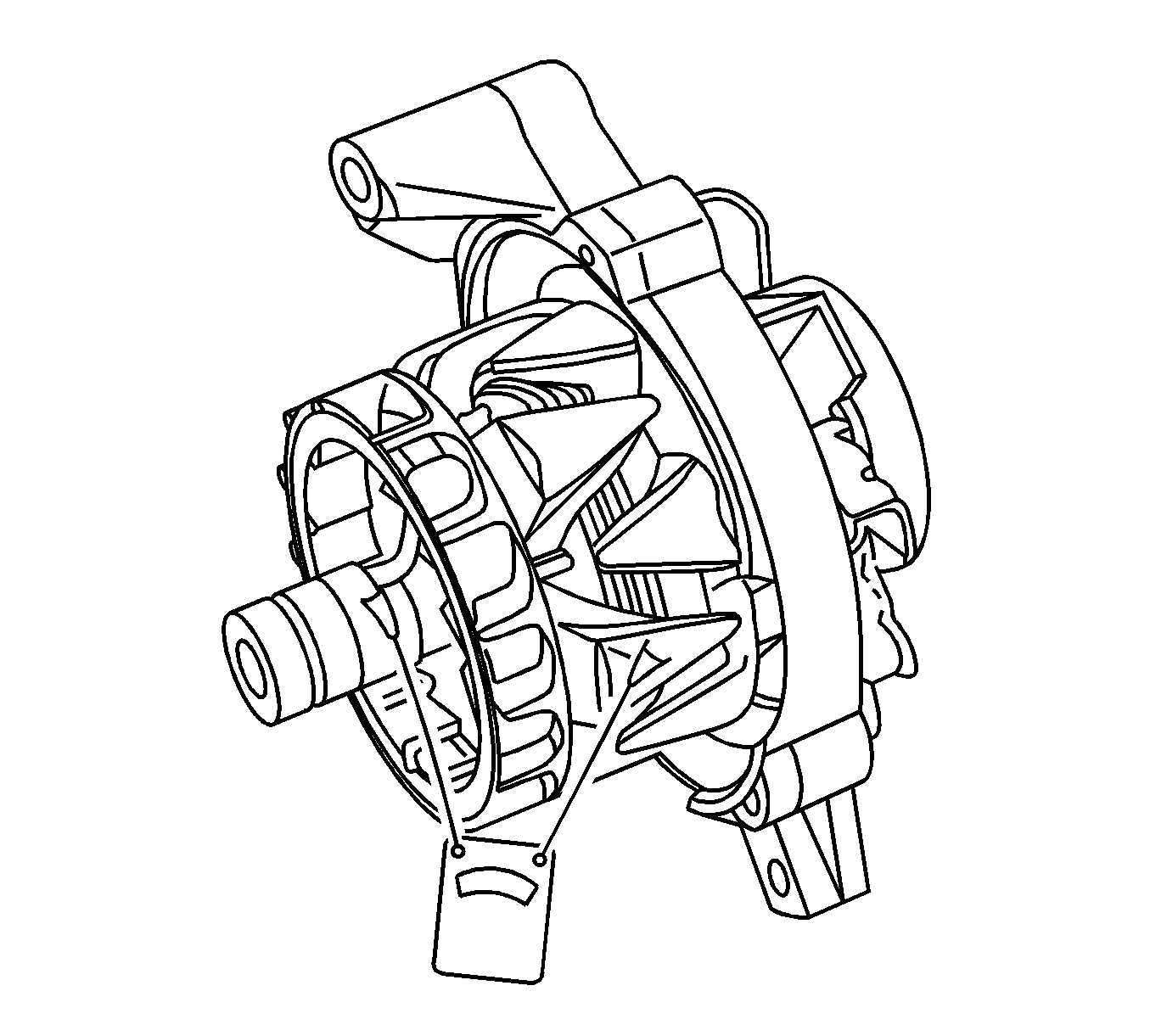
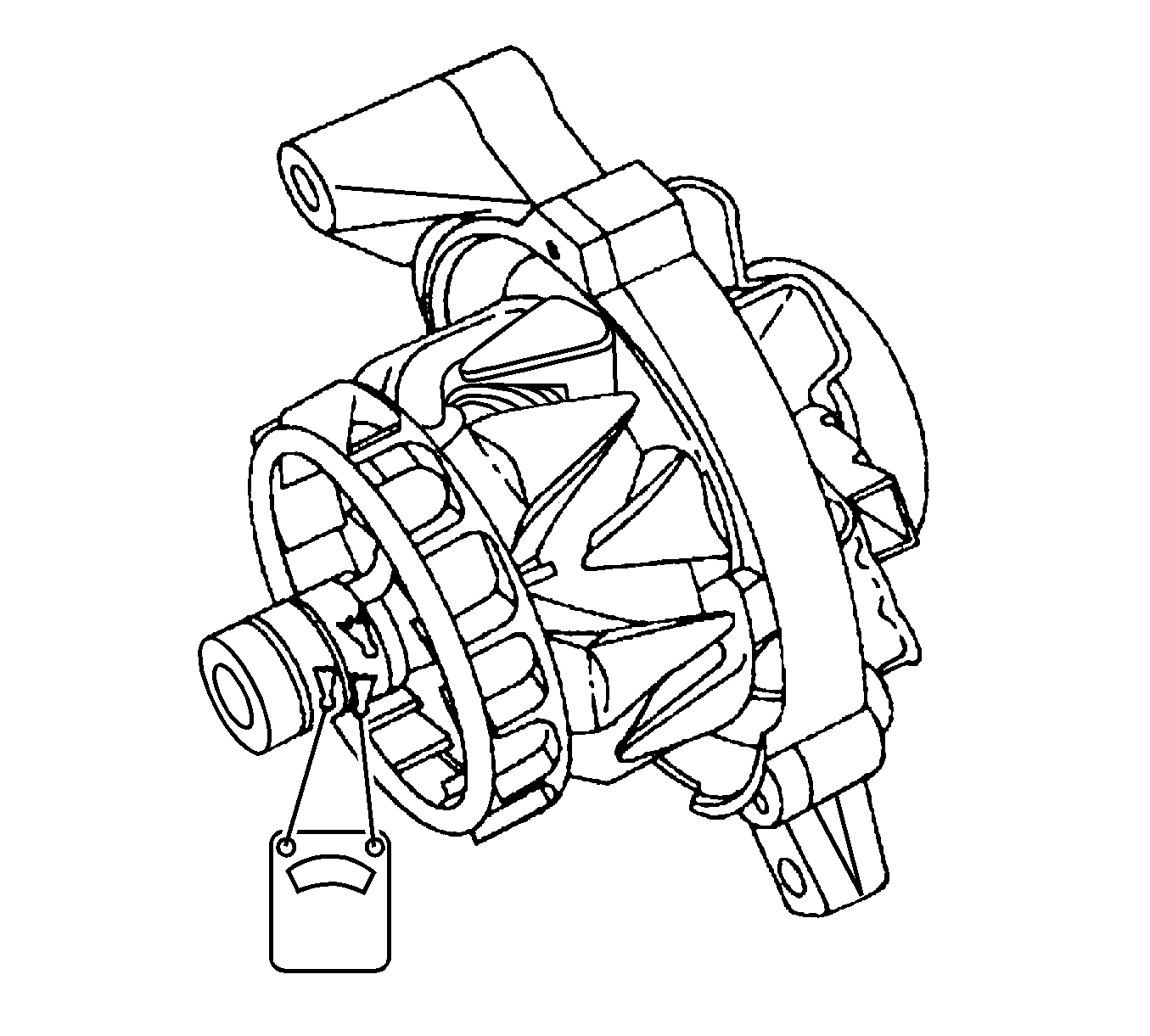
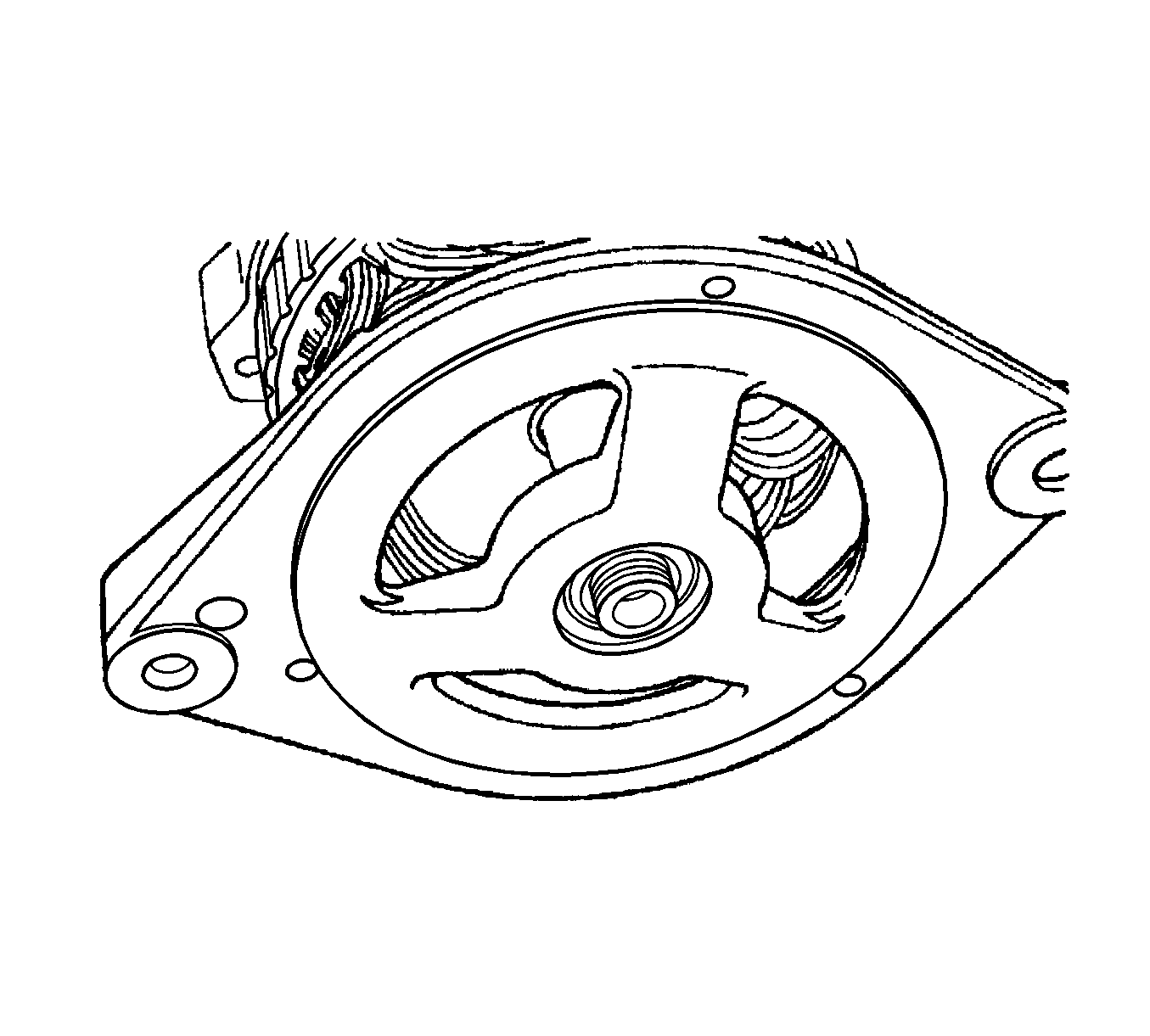
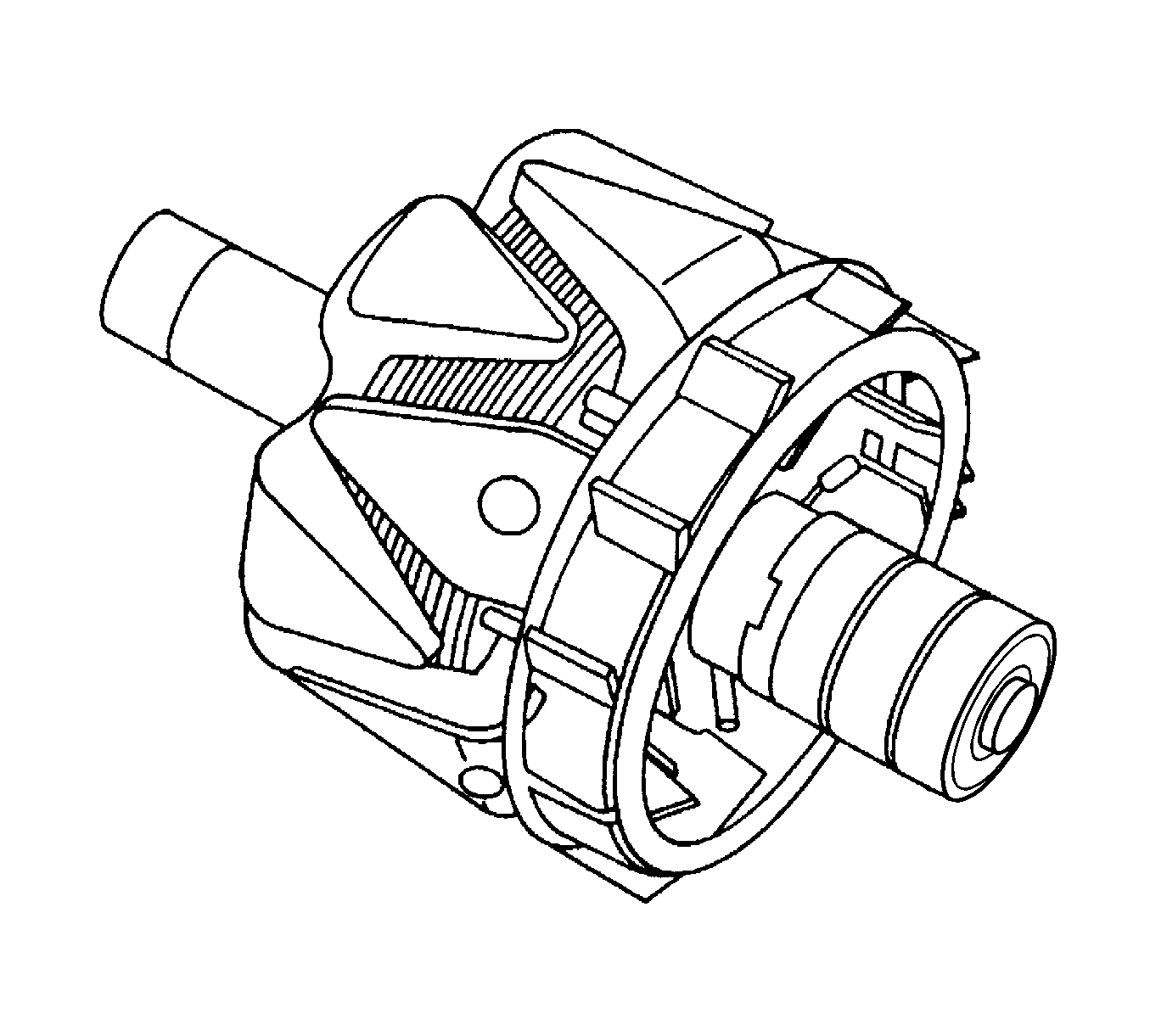
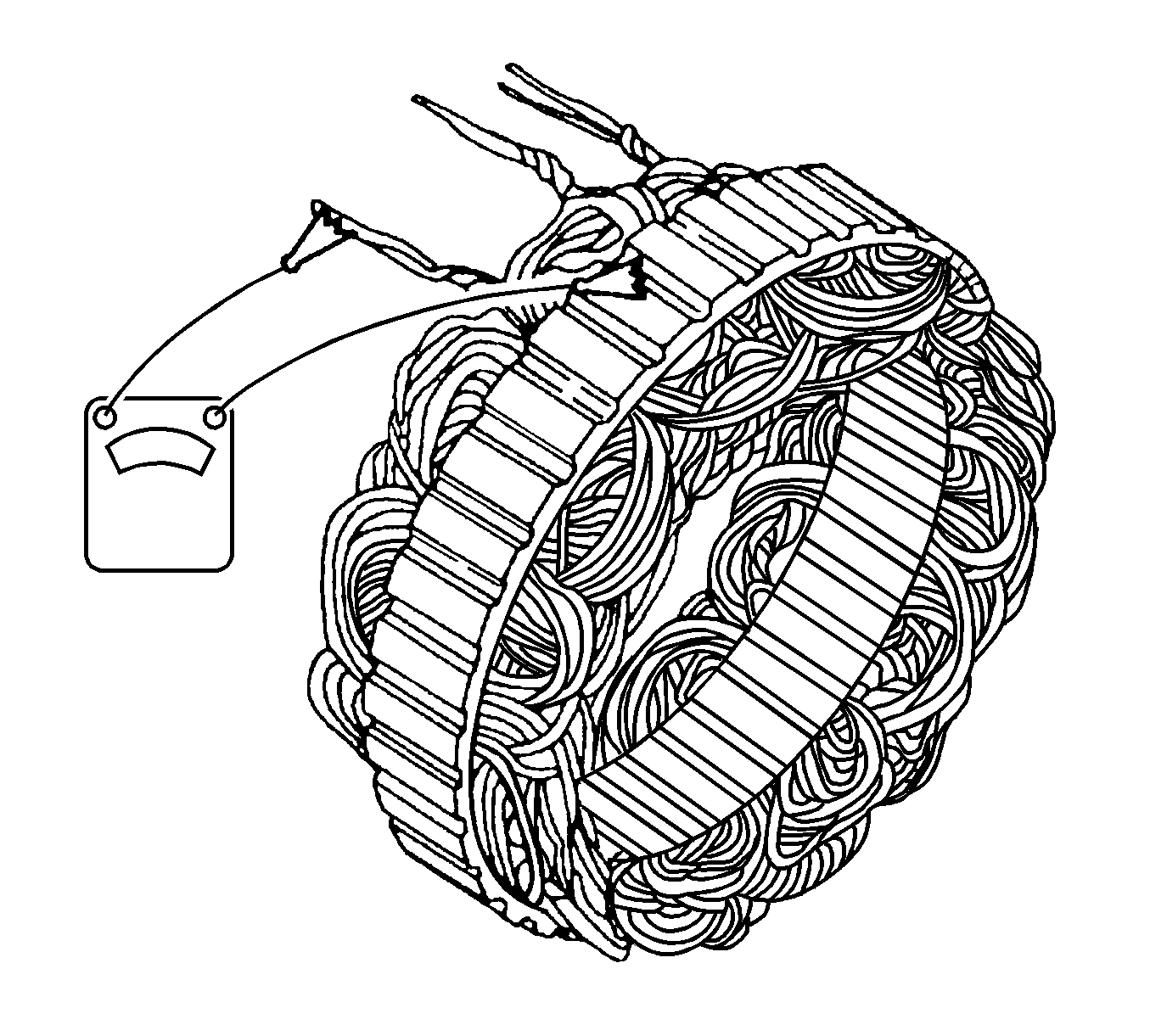
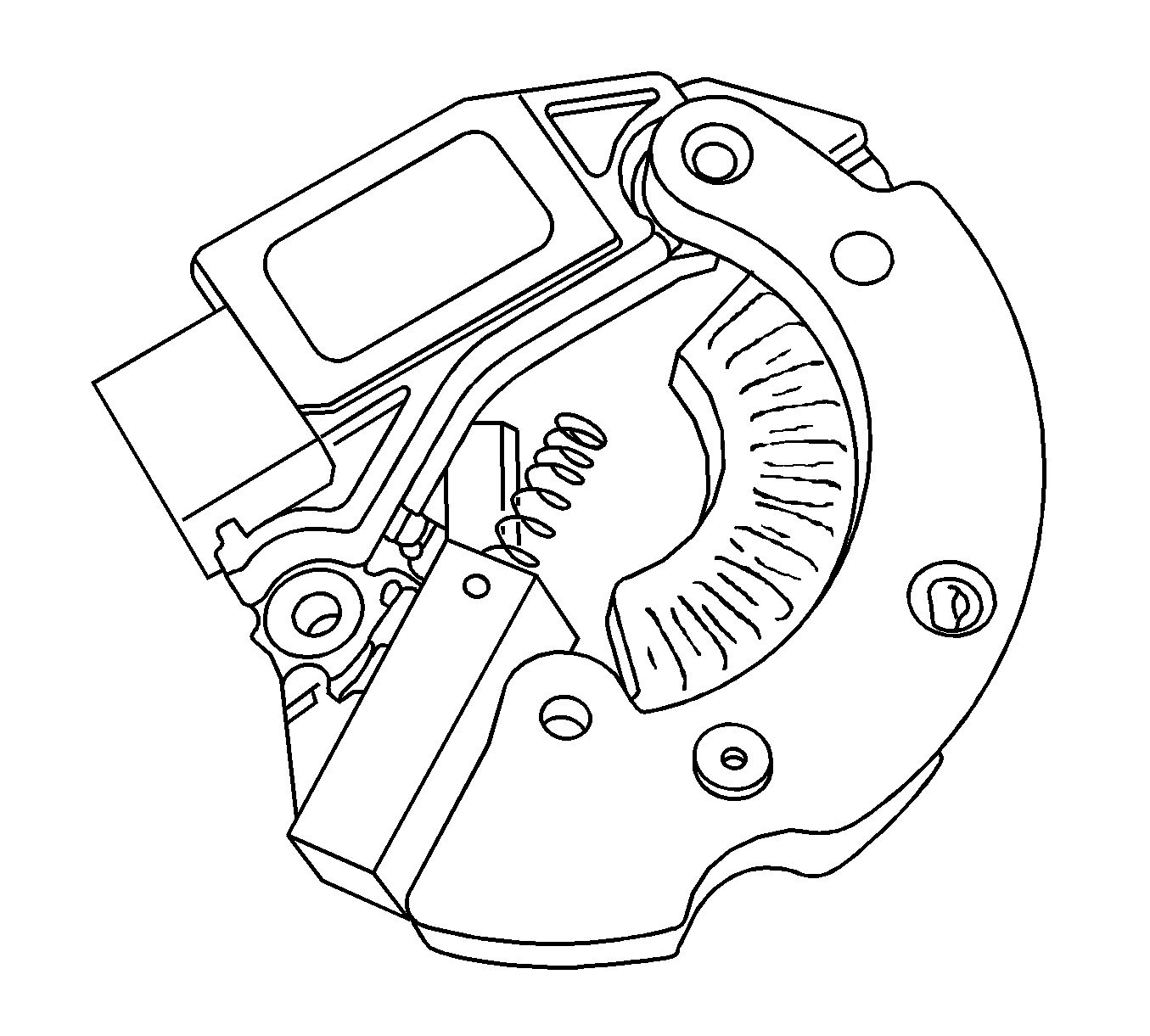
Important: If the brush can be reused, reassemble the brush to the holder with the retaining pin, after cleaning the brush with a soft, clean cloth.
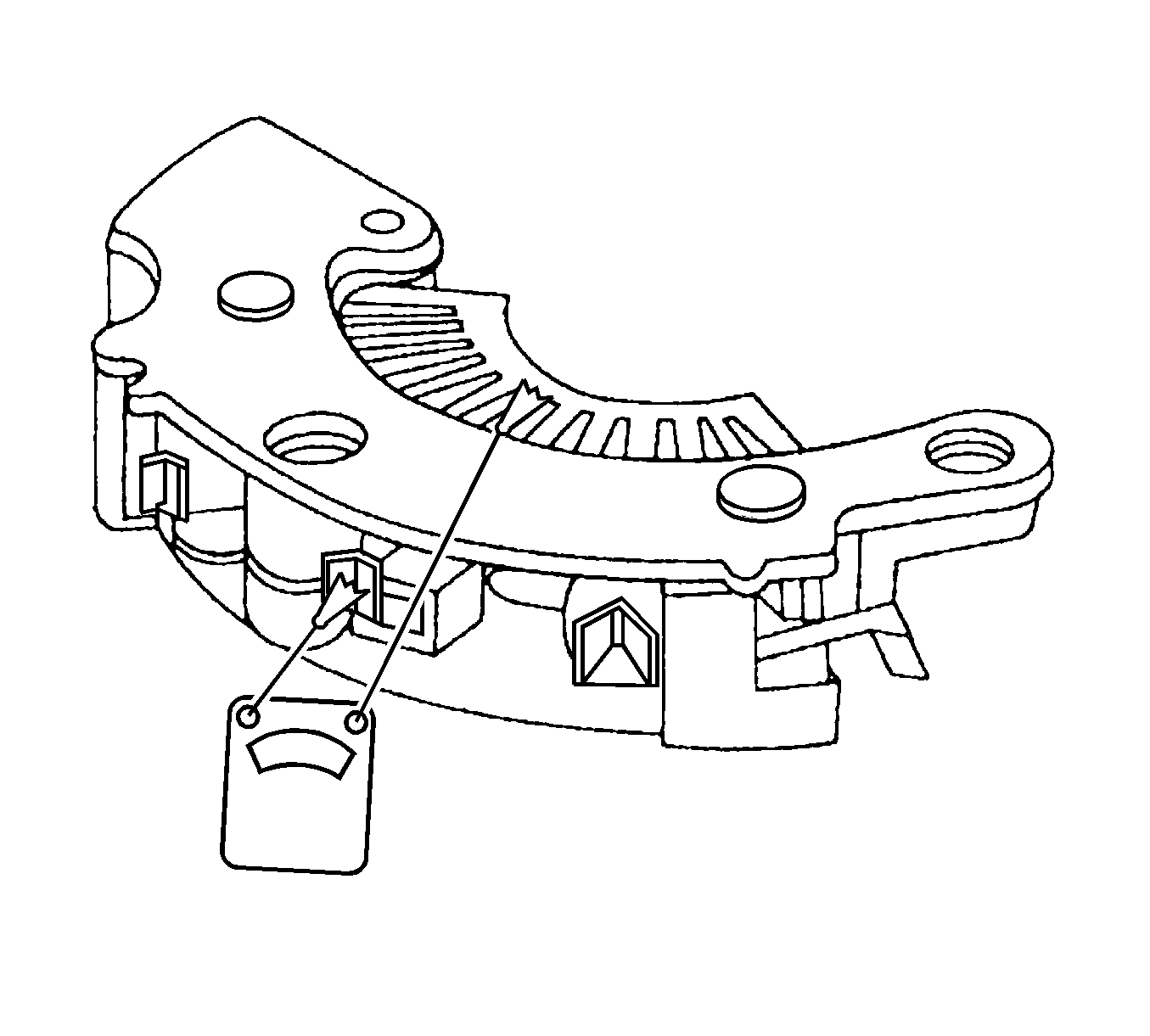
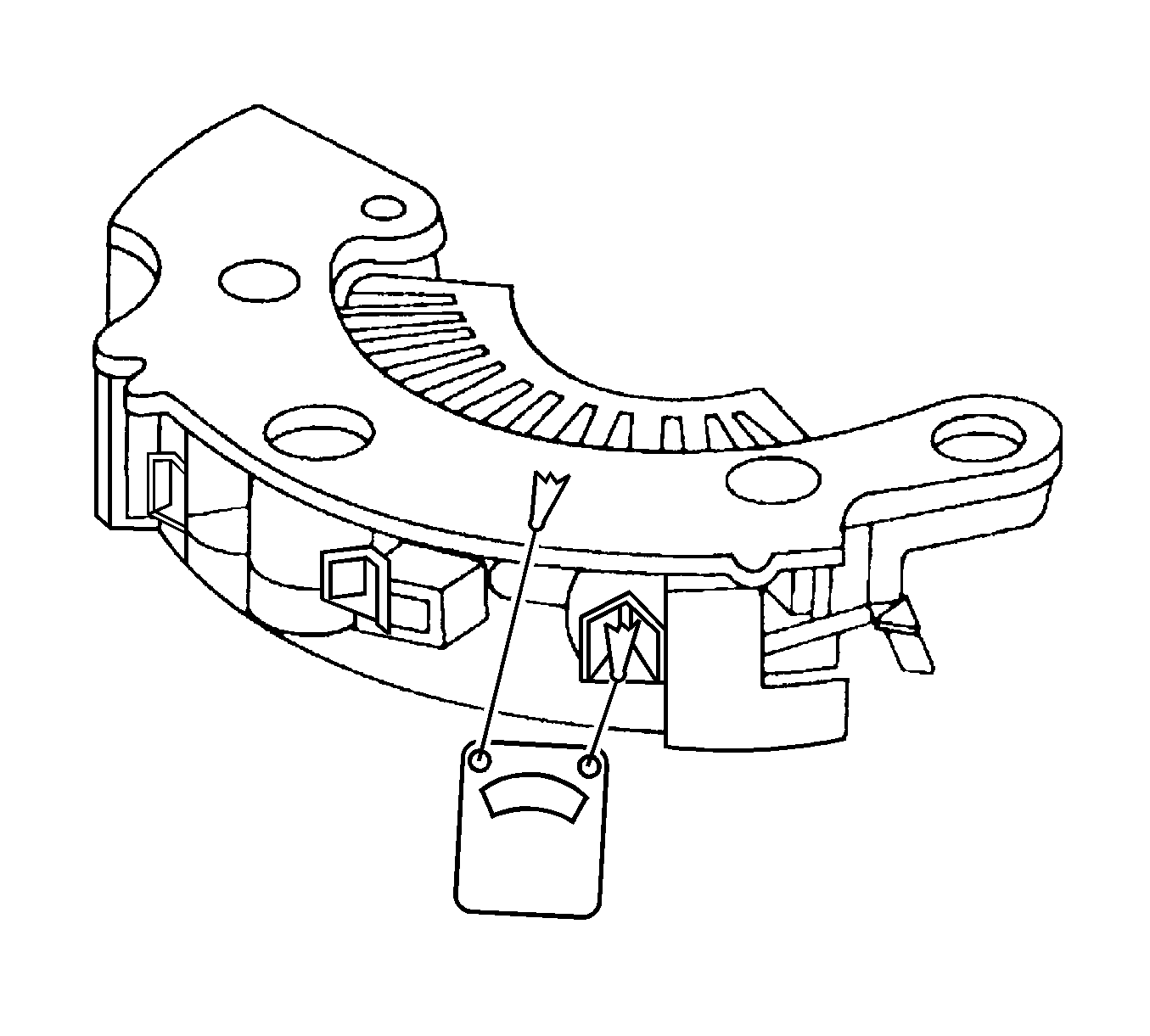

Important: Some kinds of digital ohmmeters are not suited for the test of the bridge diode. In this case, consult the manufacturer regarding the test capacity.
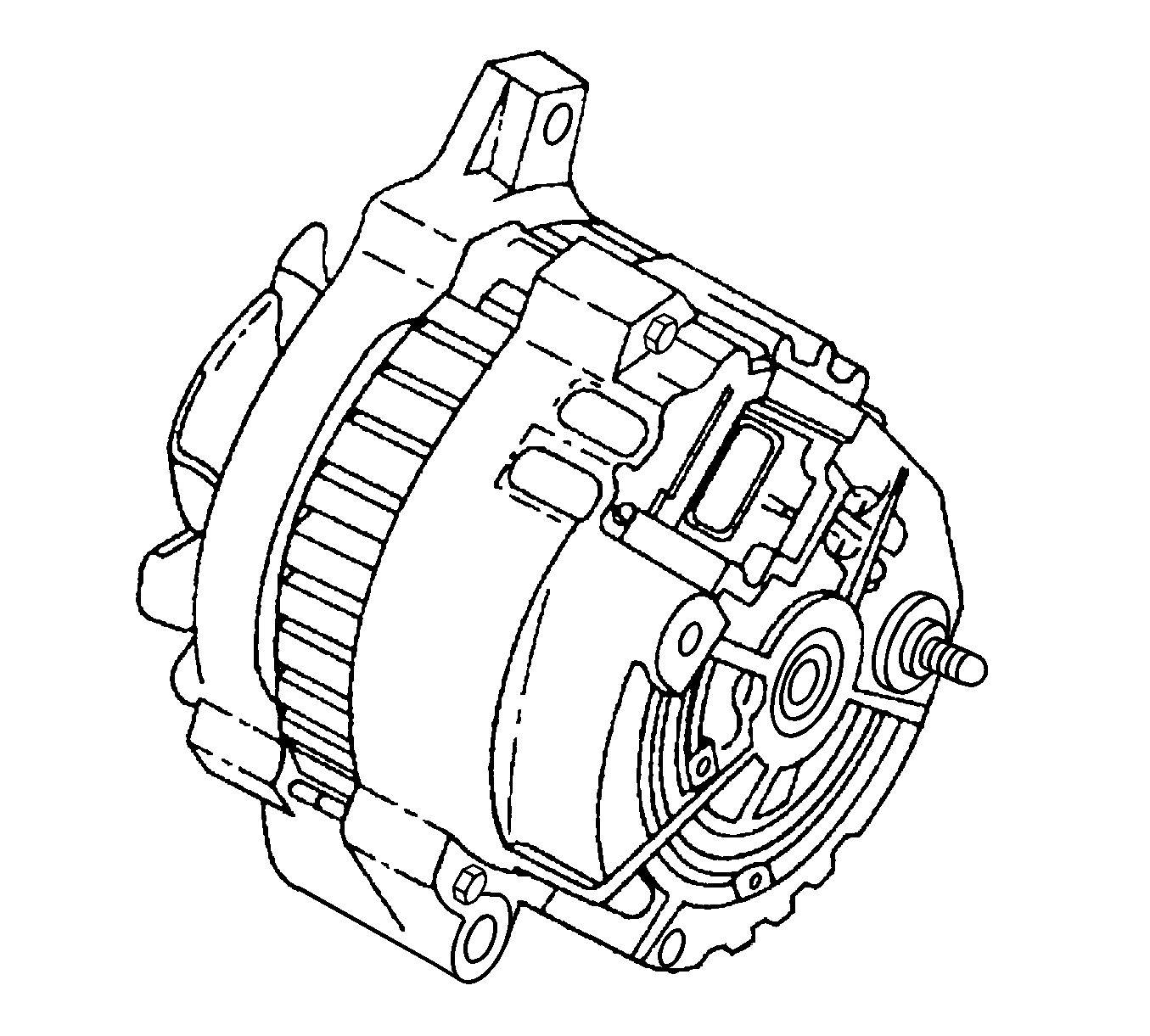
Assembly Procedure
- Install the new ring in the slip ring end frame.
- Push the new bearing outer lace into the bottom of the end frame casting.
- Solder the brush holder terminal to the regulator terminal, if removed.
- Fix the brush holder with the retainer pin, and solder the regulator and brush holder assembled terminal to the rectifier terminal.
- Apply silicone grease between the bridge and the end frame for radiation purposes.
- Fasten the screws holding the rectifier regulator and brush holder assembly to the end frame.
- Punch the new baffle with the pin into the brush.
- Install the stator.
- Solder or weld the connectors of the rectifier bridge.
- Install the outside cover.
- Position the rotor assembly shaft with the drive end frame in the slip ring end assembly until the gap between the outer lace and the end frame casting is 1.9 mm (0.075 in).
- Install the generator through-bolts.
- Position the fan, the collars, and the pulley on the rotor shaft and secure with the nut.
- Install the generator. Refer to Generator Replacement .
Caution: Refer to Safety Glasses Caution in the Preface section.
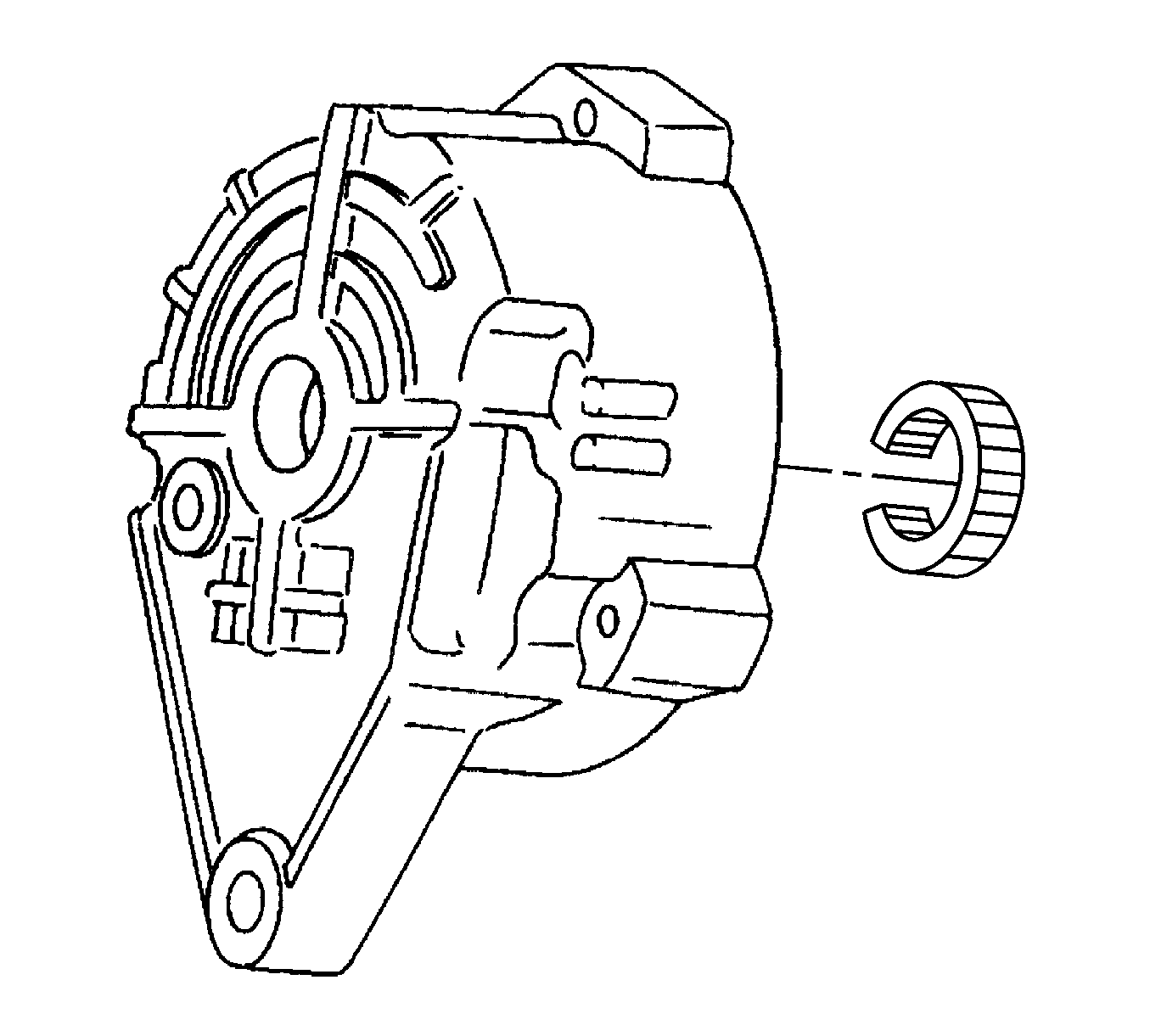

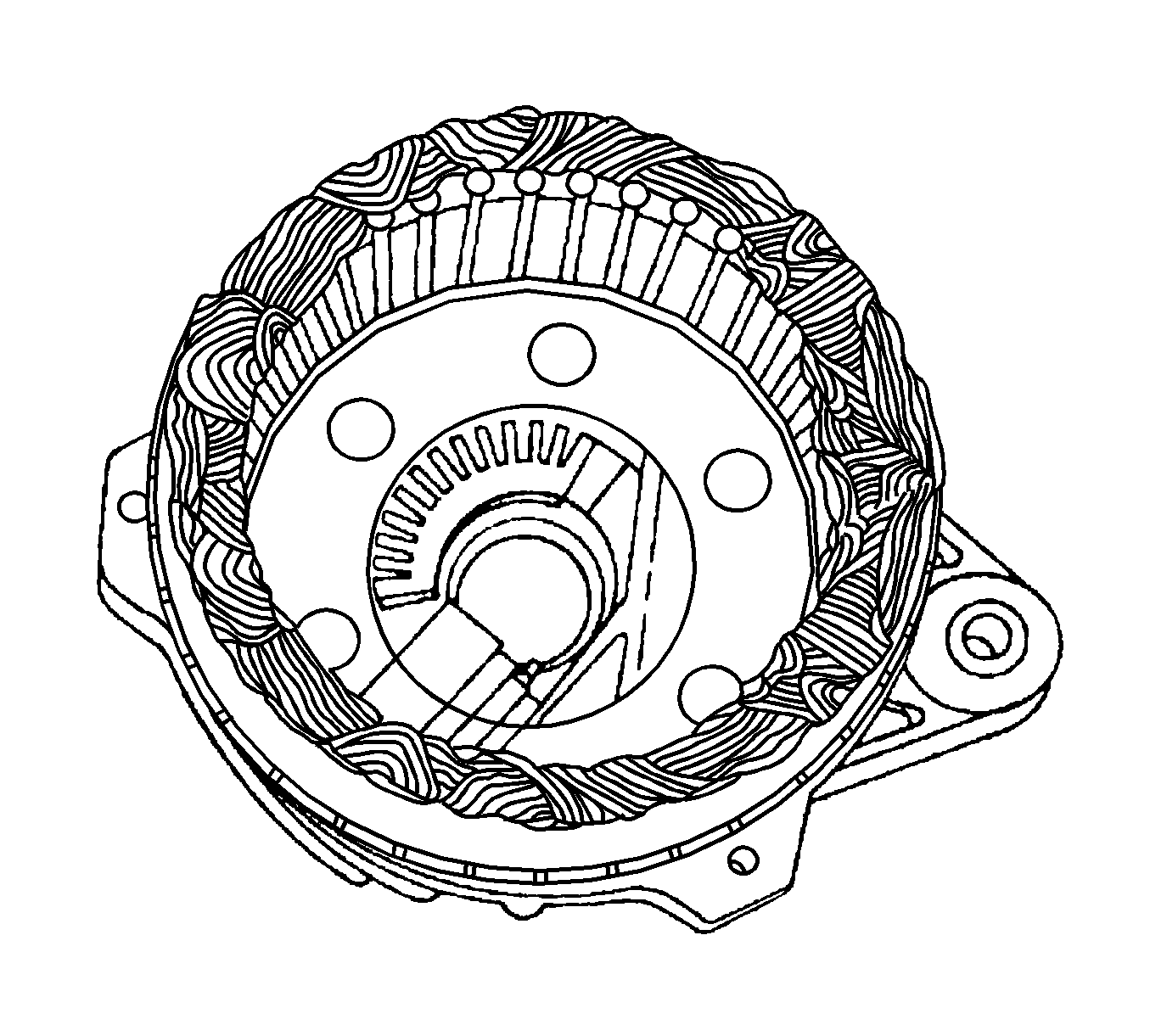
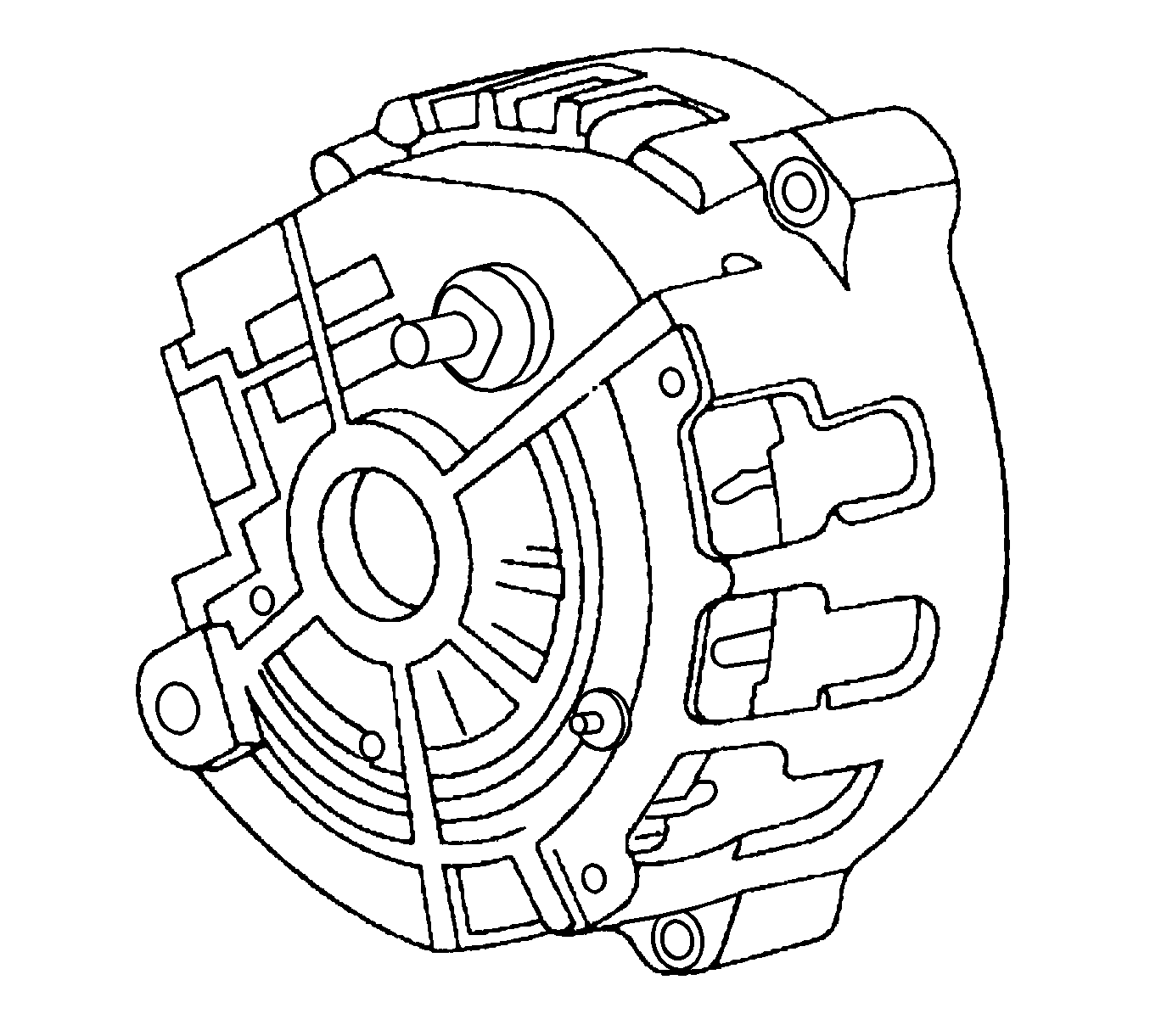
Notice: Protect the diode in the rectifier bridge from excessive heat while welding. Overheating the diode will cause damage to the rectifier bridge.


Notice: Refer to Fastener Notice in the Preface section.
Tighten
Tighten the generator through-bolts to 10 N·m (89 lb in).

Tighten
Tighten the pulley nut to 81 N·m (60 lb ft).
